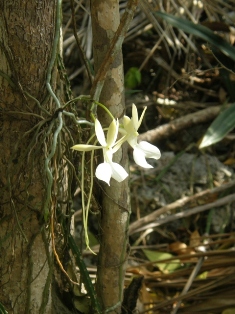UK drilling down to environment in territories
 (CNS): In just over two weeks the Environmental Audit Committee in the UK will close its request for submissions regarding an inquiry which began in September on sustainability in the UK Overseas Territories (UKOTs). The committee is examining the environmental protections in all of its 14 territories, which altogether contain more biodiversity that the entire UK mainland, including 74 critically endangered species. The UK government is accountable for this biodiversity and, as a result, the audit will examine how it is fulfilling its responsibilities and obligations to protect the environment and may see Cayman eventually forced to enact the National Conservation Law.
(CNS): In just over two weeks the Environmental Audit Committee in the UK will close its request for submissions regarding an inquiry which began in September on sustainability in the UK Overseas Territories (UKOTs). The committee is examining the environmental protections in all of its 14 territories, which altogether contain more biodiversity that the entire UK mainland, including 74 critically endangered species. The UK government is accountable for this biodiversity and, as a result, the audit will examine how it is fulfilling its responsibilities and obligations to protect the environment and may see Cayman eventually forced to enact the National Conservation Law.
While the UK’s focus on the Cayman Islands has been financial in recent months, its stated aims in the White Paper, launched last year, make it clear that it is also concerned about the environment in its diverse collection of territories. Without any form of lawful protection for most of its land species and home to several of the 74 endangered species, Cayman may well be come under pressure from the UK, once again, to enact legislation.
During the current enquiry the committee will be examining whether or not the recommendations made in a 2008 report, Halting biodiversity loss, which looked at safeguarding biodiversity and practicing joined-up government to further conservation, have been implemented. It will also seek to find out if the UK government’s strategy is consistent with the conclusions and commitments on protecting biodiversity reached at the recent United Nations Rio+20 conference.
Among other issues, the committee will also look at how weaknesses in civil society and governance in the territories impact on conservation.
Category: Science and Nature


I fervently hope something can be done to bring about a meaningful National Conservation Law. It is unbelievable that our Premier would stand against preservation of our wildlife and conservation efforts! We await the findings of the Environmental Audit Committee…..
What about the Environmental Protection Fund?
Isn't it even a teeny tiny bit problematic that the Cayman Islands Government has for years been extracting millions of dollars in fees from the travelling public without applying any of it for its intended purpose?
By all accounts (even though CIG doesn't maintain real accounts) this money is simply being used to create the illusion that CIG has a certain level of working cash on hand, although many say it has actually been spent and exists only in the form of IOUs.
Let's start with the expanded marine parks, OK UK?
But certain developer friends of Mac asked that the NCL revision be mothballed so they could make money. Is that not more important?
Oh Banga langa Cayman you in trouble now!
We all know Cayman needs a revised NCL of some kind. Some of the current regulations date to the 1970s and are far out of date. LA should get ahead of the ball to revise the 43 clauses in the draft NCL, or wait and have their hand forced by UK. Any catalyst that gets this necessary work done is good news.
Maybe something will get done at last.I realise that some parts of the NCL need to be changed and the CI$500,000 fine for breaking the law is a little out of sync(but in the case of private yachts and others doing willful damage to our reefs) then this fee is well within our rights to enforce.The other infringements of the law(taking conch,lobster wilks etc out of season or over catch limit)should be dealt with by the courts and a lesser penalty should be handed down.Dont get me wrong here as these offenders should be hit hard re fines or imprisonment for repeat offenders especially.No where else in this area(USA,Canada etc)can one get away with what we do here.Yes I understand that more enforcement is needed but here again our Environemental fund has been collected for this very use.(or one of many uses)Let us hope that things will be better re this important piece of Legislation(one of critical importance to our tourism product)and for the record I am NOT against development as some may think BUT it has to be done hand in hand with our environmental concerns.
DoE has (once again) dealt with the meaning of the draft section 31(1) of the Conservation Law – CI$500,000 fine – in its answers to Paul Simon's viewpoint, that it is implied that the penalties are up to that maximum. The position is expressly dealt with by the Interpretation Law (1995 Revision) Section 43:
"Where any fine or penalty is imposed by or under the authority of any Law it shall be implied that the amount of such fine or penalty is the maximum amount; and where by any Law any person may be sentenced to any term of imprisonment it shall be implied that such term of imprisonment is the maximum term."
Your point is supposed to make us feel better?